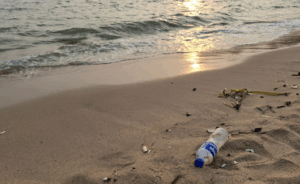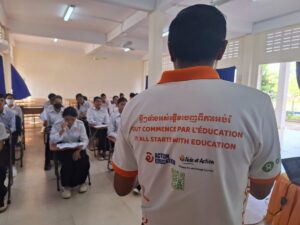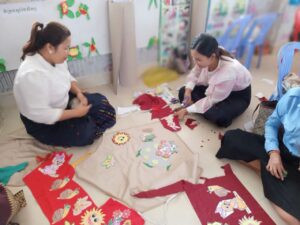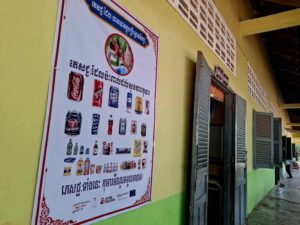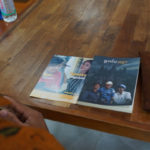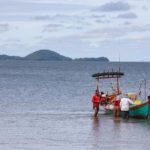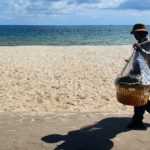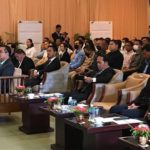Cambodian children from seaside communities act for a healthy beach, a healthy community and a healthy environment. Friday afternoon is a good time to learn outside of the classroom and go to Angkol beach. Students clean up rubbish and plastic pollution, taking strong and positive action for people and planet. The conservation and sustainable use of the oceans, seas, and marine resources – which are vital to human existence and life on Earth – is the Sustainable Development Goal 14.

13-year-old Socheat and her friends actively preserve and restore the natural beauty of their little paradise. She is aware that even a tiny contribution can help her community’s cause. “My parents work as teachers,” she explains. “Today, we pick up trash on the beach and put it in the truck. When the beach is clear of litter, more visitors may come to visit us and our local communities can earn money.”
Eco-tourists and responsible shoppers are welcome to support fishing communities making a living at a time of climate breakdown, by enjoying a simple way of life on the beach. Families offer activities like food, a coconut, a hammock under a tree or a boat tour around the islands. Seofong, 13, enthusiastically says: “My mother owns a tiny shop, and my father is a fisherman. I came to clean our beach today in the hopes that it will attract national and international tourists.”

Beach cleanups are organised by schools and local Government officials with the support of the CO-SAVED project, which is co-funded by the EU and led by Action Education (Aide et Action). They are part of a range of activities related to education, water and sanitation, eco-tourism and marine conservation in the coastal areas of Cambodia. The objectives today are to raise awareness and to contribute to sustainable livelihoods and a clean environment.
Children in Cambodia are agents of change and can amplify the global call for climate action as they learn about plastic pollution and its detrimental effects on ocean life. Raising public awareness on the role that each of us can play is key to address a global issue. According to the EU, it is estimated that up to 37 million tonnes of plastic waste will reach the ocean annually by 2040. [1] In Cambodia, plastic pollution is endangering poverty eradication efforts and sustainable development. Countries in the Global South face high risk associated with climate change despite having the lowest global greenhouse gas emissions.
[1] EUROPEAN COMMISSION (2023), Food, farming, fisheries, #EUBeachCleanup 2023, https://oceans-and-fisheries.ec.europa.eu/eu-beach-cleanup_en
Furthermore, climate injustice is intergenerational. Children are among those most vulnerable to the impacts of environmental damage, yet they are the least responsible for climate boiling. According to UNICEF, over 210 million children in the East Asia and Pacific region are highly exposed to cyclones; 140 million children are highly exposed to water scarcity; 120 million children are highly exposed to coastal flooding; and 460 million children to air pollution. [1] Acting together to protect the ocean and our environment is critical to ensuring a brighter future for all.
[1] UNICEF (2023), Children in East Asia and the Pacific face the greatest exposure to multiple climate disasters, https://www.unicef.org/cambodia/press-releases/children-east-asia-and-pacific-face-greatest-exposure-multiple-climate-disasters

